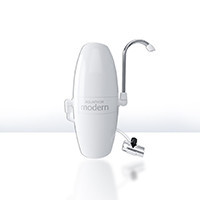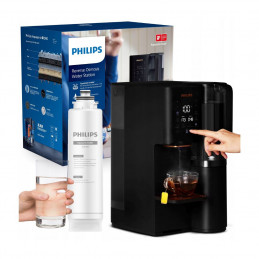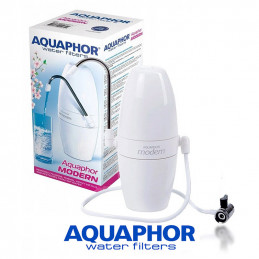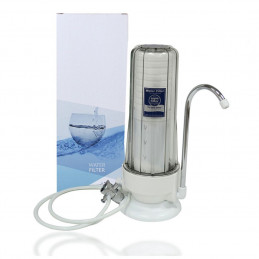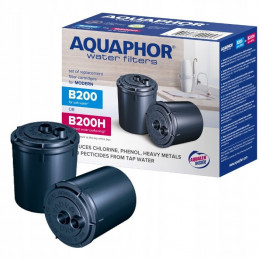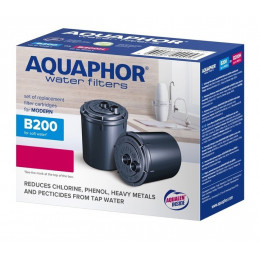- There are no more items in your cart
- Shipping
- Total 0.00 zł
- Bestsellers
- Wholesale
- Water filters
- Whole house filters
- Kitchen filters
- Bathroom filters
- Aquarium filters
- Reverse osmosis
- Water demineralizers
- Filter cartridges
- UV bactericidal lamps
- Alkaline water ionizers
- Industrial water filters
- Accessories, parts, and others
- Descaling filters for the coffee machine
- Water softeners and iron removers
- Water saturators
- ACES
- AMBERLITE
- AQUA VITA
- AQUAFILTER
- AQUAPHOR
- AQUATOR
- BASSAU
- BERG
- BIOCERA
- BIONIQ
- BLUEFILTERS
- CHEMOFORM
- CINTROPUR
- DAFI
- DELONGHI
- DIAMOND
- DOM WODY
- ECOWATER
- FILMTEC
- FIT ALCO
- FITAQUA
- GREEN FILTER
- HANNA INSTRUMENTS
- HELIXPRO
- HELLO PURE
- HIDROTEK
- HM-DIGITAL
- HONEYWELL
- Ibo
- JAVEL
- KLARWOD
- KRUPS
- MIDEA
- OTOWODA
- OTTONE
- Palintest
- PENTAIR
- PHILIPS
- PLATINUM WASSER
- PUROLITE
- SIEMENS
- Steingraf
- SUPREME
- TAB-SOL
- TOP FILTER
- UST-M
- USTM
- VONTRON
- WODARO
Tips
Countertop Filters
Countertop filters are a very popular solution for water purification in the kitchen. They are an excellent alternative to filter jugs and can successfully replace a water dispenser. Just connect them to the faucet in place of the aerator, place them on the countertop, and enjoy healthy water! Yes, it's that simple!
Filter
Price
Brand
What are countertop filters?
Countertop filters are water filtration devices that are installed on kitchen countertops in home conditions. Their primary task is to remove contaminants from tap water, such as chlorine, heavy metals, pesticides, as well as bacteria and viruses.
Countertop filters are an alternative to more complex filtration systems installed under the sink or integrated into the building's plumbing system. Due to their compact design and ease of installation, they have gained great popularity among users who value simplicity and effectiveness.
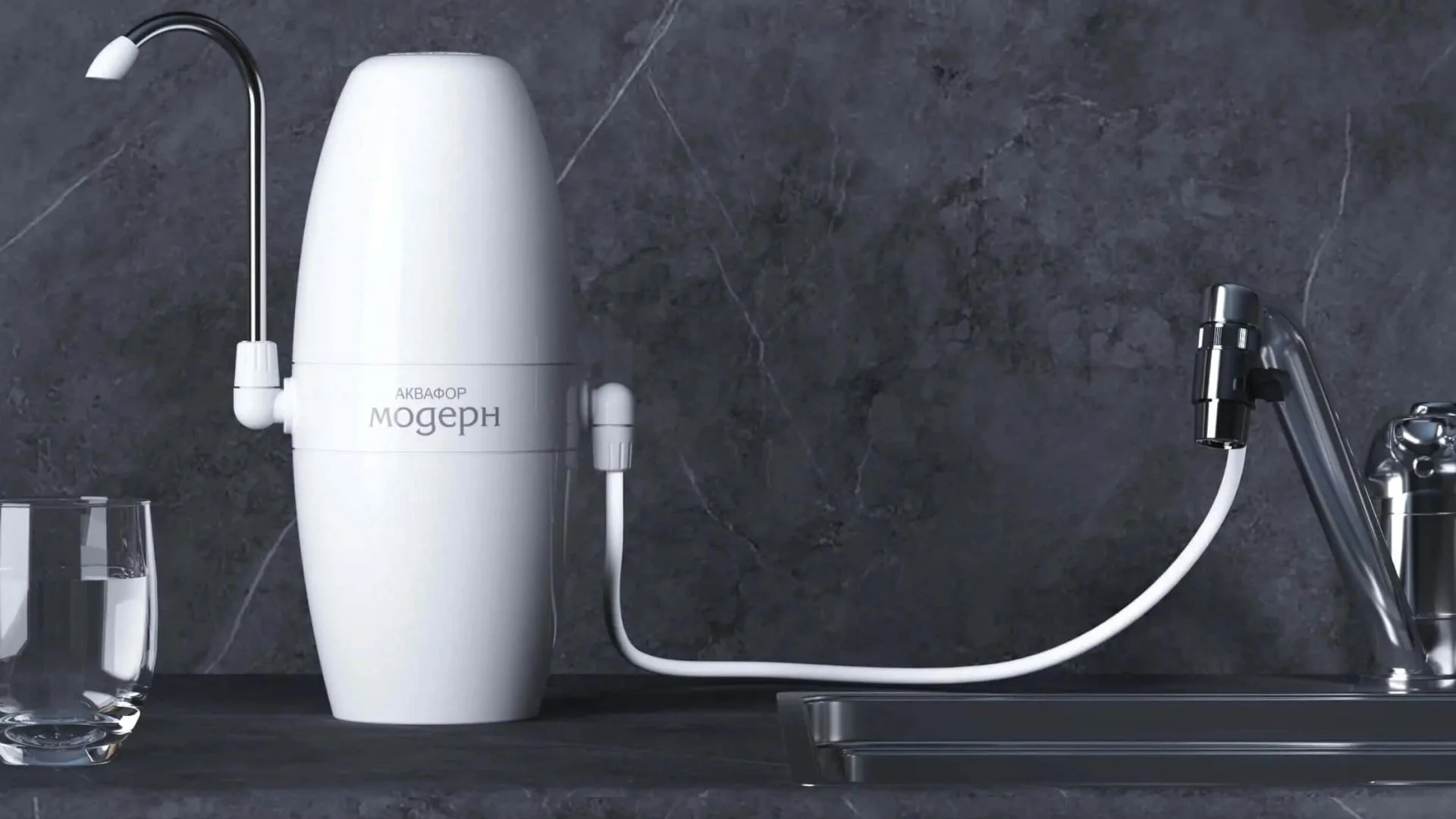
Construction and operation of countertop filters
Countertop water filters typically consist of several components, including:
-
housing,
-
filter cartridge,
-
tap.
Their operation is as simple as it is effective – water from the tap flows through the filter cartridge, where the purification process takes place. Depending on the model, the cartridges may contain various filtration materials, such as activated carbon, ion exchange resin, osmotic membranes, or ceramic filters. Each of the above materials has specific properties and is effective in removing certain contaminants. After passing through the filter cartridge, the purified water from the water supply is ready for consumption.
Types of countertop filters
Carbon filters
In countertop filters, carbon cartridges are very often used, which utilize the specific properties of activated carbon. Its great advantage is the effective adsorption of chlorine, organic compounds, and some types of heavy metals. Carbon filters are valued for their simplicity, effectiveness, and relatively low operating costs.
Foam filters
The main component of foam cartridges for countertop filters is a material with high porosity (e.g., nonwoven fabric), which traps mechanical contaminants such as sand, rust, or sediments. The foam is also impregnated with special substances that neutralize harmful chemicals and remove unpleasant odors and the taste of chlorine.
Ceramic filters
Ceramic filters use porous ceramic elements to remove mechanical contaminants from water. These pores are small enough to trap most bacteria and sediments while allowing free water flow.
Ceramic filters are often used in combination with other filtration materials, such as activated carbon, which significantly increases filtration effectiveness. Their additional advantage is easy maintenance – they just need to be washed to extend their lifespan.
Advantages of countertop filters
Ease of installation and use
One of the biggest advantages of countertop filters is their ease of installation and use. Unlike under-sink systems, countertop filters do not require complicated installation or intervention in the plumbing system. They can be connected directly to the tap using the included adapter. Operating these filters is also simple – replacing filter cartridges usually does not require specialized tools or skills.
Mobility and versatility
A countertop filter is a portable device, making it easy to take it anywhere with you (e.g., during a move or vacation). Its compact design allows it to be placed on any kitchen countertop, and some models are equipped with additional features such as water flow regulation or cartridge usage indicators.
Operating costs
The operating costs of countertop filters are generally lower than those of more advanced filtration systems. Replacing filter cartridges is simpler and cheaper, and the devices themselves are available in a wide price range, allowing for a specific model to fit the budget. Countertop filters also offer savings compared to purchasing bottled water, which is an additional advantage for users concerned about finances and the environment.
Purification of drinking water using countertop filters
Removal of chemical contaminants
Countertop filters effectively remove many chemical contaminants from tap water. Activated carbon is particularly effective in adsorbing chlorine, which is commonly used for water disinfection but gives it an unpleasant taste and odor at higher concentrations. Additionally, countertop filters remove other organic compounds, such as pesticides and herbicides, that can seep into surface and groundwater.
Removal of biological contaminants
In the case of biological contaminants, such as bacteria and viruses, the effectiveness of countertop filters depends on the filtration technologies used. Models that have a multi-stage filtration process can trap most microorganisms, ensuring safe drinking water. However, not all countertop filters offer full protection against biological contaminants, so it is important to choose the right model according to the user's needs.
Better taste and odor of water
One of the most noticeable effects of using countertop filters is the improvement of organoleptic sensations, namely the taste and odor of water. This happens because substances such as:
-
chlorine,
-
heavy metals,
-
organic compounds.

Choosing the right countertop filter
Analysis of user needs
The choice of the right countertop filter for the kitchen should start with an analysis of the user's needs. Factors such as water quality in the region, the type of contaminants to be removed, and the expected level of filtration should be considered. For example, if the tap water contains high concentrations of heavy metals, it is worth choosing a filter with a carbon cartridge or reverse osmosis to effectively eliminate these substances.
Budget and operating costs
Another important factor is the budget available for purchasing and operating the filter. Countertop filters are available in a wide price range, from simple models with activated carbon to more advanced systems with reverse osmosis.
It is also worth considering the costs of replacing filter cartridges and any maintenance of the device. When choosing a filter, it is worth investing in a model that will meet our needs and provide long-term savings.
Maintenance and replacement of filter cartridges
Regularity of cartridge replacement
Regular replacement of filter cartridges is crucial for maintaining high-quality filtered water. Depending on the model and type of cartridge, the recommended replacement frequency may vary. Carbon filters typically require replacement every 3-6 months, while reverse osmosis filters may require membrane replacement every 2-3 years. Detailed information on this can be found in the user manual for the specific filter model.
Cleaning of filtration elements
For ceramic filters, regular cleaning of the filtration elements is a necessity. These filters can be washed under running water, removing sediments and mechanical contaminants that may settle on their surface. Regular maintenance extends the lifespan of the filter and ensures its effective operation for a longer time.
Water Quality Monitoring
Monitoring the quality of filtered water is important to ensure that the filter is functioning properly. Some more advanced models are equipped with cartridge usage indicators that inform you when they need to be replaced. It is also advisable to periodically test the water to check if the level of contaminants is rising and that the filtration is characterized by a high level of effectiveness.
Countertop Filters at MojaWoda.com
Countertop filters are an effective and convenient solution for improving the quality of drinking water in households. With easy installation, portability, and a wide range of available models, these filters are an excellent alternative to bottled water and more advanced filtration systems.
In our offer, you will find the highest quality countertop drinking water filters from manufacturers such as Aquafilter and Aquaphor, which provide two-stage purification. We invite you to check out the products from our store!

FAQ – Frequently Asked Questions
1. What are countertop filters?
Countertop filters are water filtration devices that are installed on the kitchen countertop. They remove contaminants from water such as chlorine, heavy metals, pesticides, as well as bacteria and viruses. They are an alternative to under-sink systems and filter jugs.
2. How does a countertop filter work?
A countertop filter works by passing tap water through a special cartridge that cleans the water of various contaminants. Cartridges may contain materials such as activated carbon or non-woven fabric.
3. What are the advantages of countertop filters?
The main advantages of countertop kitchen filters include: ease of installation, simple operation, mobility, versatility, and low operating costs.
4. How to choose the right countertop filter?
Choosing the right countertop filter depends on: the quality of water in the given region, the type of contaminants you want to remove, your budget for purchasing and operating the equipment.
5. Do countertop filters remove all biological contaminants?
Countertop filters can remove most bacteria and viruses, especially those with a multi-stage filtration process.




